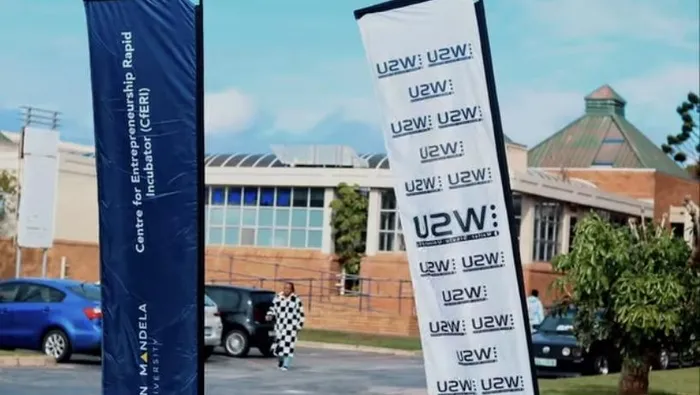
Walter Sisulu University students were protesting over the poor condition of residences and reportedly marched to the manager’s on-campus residence when live shots were fired.
Image: Instagram/@officialwsu
THE suspended Walter Sisulu University (WSU) campus manager has been charged with murder, attempted murder, possession of unlicensed firearm, possession of ammunition in connection with the death of student Sisonke Mbolekwa.
Two more, Ntando Gqetywa and Lizwa Ndzumo, were wounded during protests on the Mthatha campus last week.
The students who were protesting over the poor condition of residences, were reportedly marching towards the manager’s on-campus residence when live shots were fired.
The university on Tuesday confirmed the staff member, Manelisi Mampana, was on precautionary suspension.
Mampana made his first appearance in the Mthatha Magistrate’s court Tuesday charged with murder, attempted murder, possession of unlicensed firearm and possession of ammunition, said Eastern Cape NPA spokesperson, Luxolo Tyali.
His case has since been postponed for bail application to May 2 and he will remain in custody.
The WSU council further confirmed the appointment of Justice Chris Jafta as the Chairperson of a Commission of Inquiry into the events, assisted by Adv Bayethe Maswazi, who will be the evidence leader. The attorney for the Commission is Zincedile Tiya.
The Commission, whose work started Tuesday, has been tasked to investigate and make recommendations on the circumstances leading to the shooting on April 15. It will also probe the causes of the shooting, and whether or not any university employee; student; service provider; or any individual or entity contributed by conduct or omission to the incident and/or failed to take preventative action despite being able and under a duty to do so, among others.
Other aspects to be investigated, council chairperson, Professor Tembeka Ngcukaitobi said, would include: “The allegations of a breakdown in student discipline and governance at the Mthatha campus, and the underlying causes thereof, and whether adequate measures were taken by the responsible university employees to ensure that grievances of students are identified, addressed sufficiently, and discipline is enforced and maintained to ensure the safety of everyone on campus.”
The Commission has been given three months to provide their final report and recommendations to the Council.
“The Commission should submit an interim written report, containing their preliminary findings and recommendations, within one month after their appointment. The time frames can be extended on request by the Chairperson of the Commission,” Ngcukaitobi said.
In a recent statement, GOOD Party national youth chairperson Kaden Arguile said the unfolding situation WSU highlights the urgent need for reform in how protests are managed on university campuses.
“A decade has passed since the #FeesMustFall movement gripped the nation, yet many institutions still lack clear, compassionate, and effective protocols to protect both student voices and campus safety. While private security has an important role in ensuring the safety of people and property, it is crucial to remember that they are not law enforcement, nor should they act as such. The absence of open and consistent communication between university leadership, student representatives, and security personnel is a dangerous gap that must be addressed as a matter of urgency. The current climate demands clear protocols that prioritize de-escalation, mediation, and respect for human rights.”
The SA Human Rights commission is expected to soon release its report following the completion of a formal inquiry into the lawfulness of the use of force by law enforcement and private security actors during student protests at WSU last year.
“Public hearings were conducted, during which evidence was received from affected students, university officials, SAPS, and other stakeholders. The Commission affirms the constitutional right to peaceful protest and assembly, as guaranteed by section 17 of the Constitution. This right is fundamental to a democratic society and must be protected and upheld at all times. The use of force in response to protest action must be lawful, necessary and proportionate, with full accountability for any violations. At the same, we remind all protestors that protests must be peaceful,” said the commission.
Cape Times
